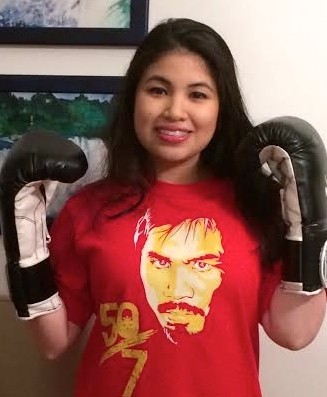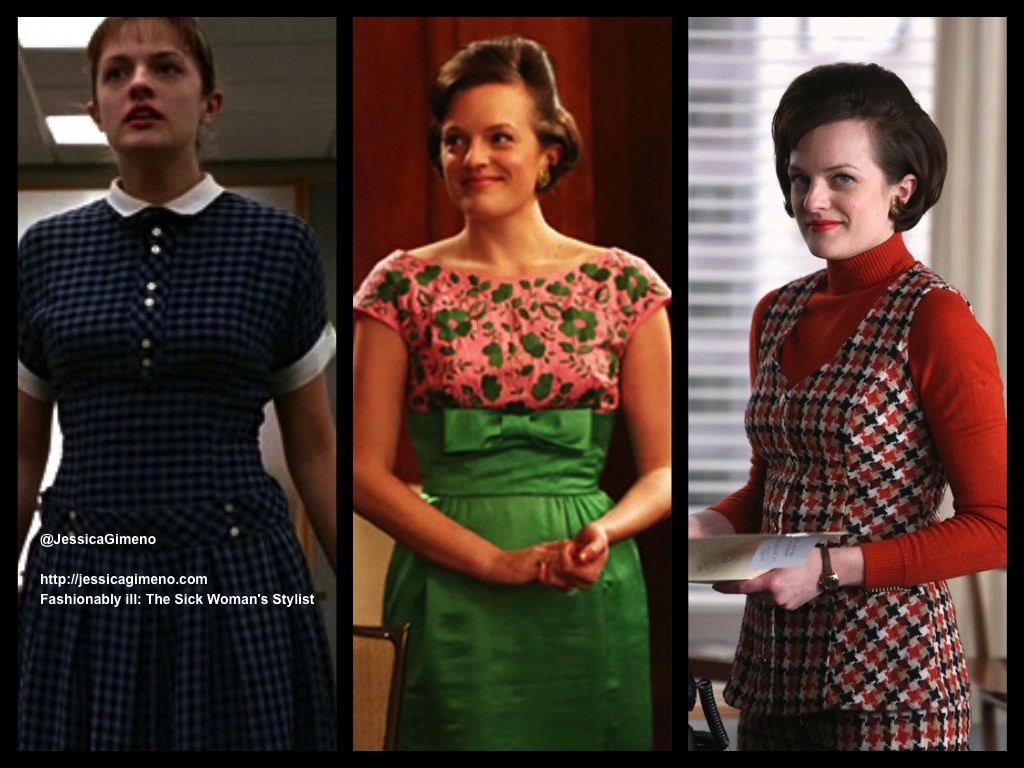Coming Out of The Chronic Illness Closet at Work: Choice or Duty?

Today, we have a guest post from rockstar lupus advocate, Gabrielle Davis.
A month ago, I got an email from a local Lupus leader suggesting I ask my company to be a corporate sponsor for an upcoming Lupus Walk. Exhausted from the ongoing internal debate about whether or not to keep my diagnosis on the low, I made a split decision and jumped at the chance. Not even 10 minutes later, I made the request. The $500 sponsorship was soon approved without a hitch, badda bing, badda boom. I claimed a small victory for myself and was riding high for the rest of the day.
Oddly enough, a week before the walk, it was an email that caused me to go into a panic.
There’s a fine line in navigating two separate lives: guarding your privacy at work, but being vulnerable as a Lupus advocate in public. I thank God for two compassionate bosses who know about my illness and see me as a person first and an employee second, which is rare. And of course Human Resources needed to know because of insurance. But I knew one day the back and forth had to come to an end, and it did, kind of.
In an email thread, which included a co-worker who wasn’t privy to my illness, I was asked if I was forming a team for folks from my company to join. Ummm…violation. Strike No. 2 – I was approached at my desk within earshot of ALL of my co-workers and asked about how to freakin’ register for the walk, you know just in case someone wanted to participate. Trying to keep my anxiety at bay, I quickly gave directions so they’d leave. It was at that point that I started to feel conflicted about my decision to be bold. I was and still am grateful that my company decided to give, but I was wondering what costs I had to pay for it in privacy.
I had questions and I took to Facebook for answers, because when you need immediate judgement you turn to Facebook… I kid, I kid. I seriously have some thoughtful people on my Friends list, including other Lupies. Some understood my plight. Others thought that being the point person was just that. It didn’t necessarily mean I had Lupus. But mostly, I was encouraged to be bold and think of the impact I could make. And my favorite response? Who cares what other people think. I felt misunderstood and cast as being paranoid.
It was all just too much and I left the discussion with deeper questions:
• Does being diagnosed with a chronic illness automatically give one the responsibility of becoming an advocate?
• In the case of an introvert, does a diagnosis on one hand change your life forever, but on the other give you the superpower to tell and live your story out loud?
• What if you don’t work in a compassionate environment, but you like your job?
For the sake of boldness and advocacy, must you wrestle with giving up a promotion because those who make the decisions aren’t smart enough to know that you have impeccable work ethic and you’ll get the job done regardless.
And then, just last week, a situation turned this whole issue with coming out on its head. I was presented an opportunity, an in-cre-di-ble opportunity, to spread Lupus awareness in a newsletter that would be circulated nationally. I’m talking 1 million Twitter followers, a gang of Facebook fans, etc. I couldn’t turn it down. The “responsibility” of getting the word out about this was too big a deal to turn away from and now I’m taking my advocacy to a national stage. #Lestruggle
But this is my journey and it was my time. I, nor anyone else, has the blueprint on how to navigate the social aspect of living with a chronic illness. Being diagnosed with Lupus, like any other disease, causes a different reaction depending on the person. Some who were bubbly and outgoing turn inward, others take their anger and decide to shine a light on the disease. Then again, those who are private, stay private and those who live unabashed lives continue to do so. At the end of the day, whatever makes one well, whether through receiving public or private support, fighting the cause in public or donating in private, it’s a choice, not a duty.





Pingback: Coming Out of the Chronic Illness Closet At Work: Choice or Duty?
It is not up to you, or anybody, suffering or otherwise, to speak up and take a stand and be vocal about an issue. It’s not really up to anybody, really, but very few people (when compared to the millions living on this earth) really felt the weight of the world on their shoulders. Everybody else may feel like they have a different calling and that is perfectly fine. Even if you have lupus, or cancer, fibro, endo, or the hundreds of other “non-perfect” health conditions that health practitioners have named, it is not up to you to carry the weight of other sufferers. It IS up to you to be the best version of yourself, no matter your condition. If you don’t want to be vocal about it, you don’t have to be, but I find that being vocal does take back some of that power initially lost where you find you can be at peace with what is happening, that you realize that you are more than your disease, you are a human being, with feelings, emotions, a range of emotions, and more.
Personally, I have been very vocal about being a spoony with no care to the responses. I do speak up about other rights and issues and I feel that is my calling. Having lupus as a teenager was difficult and even more so as an adult, but this is something that I feel I can handle, even on my worst days. Keeping quiet whereas others cannot handle their days, that is something I cannot do. I have to help, in one way or another.
Hi Christine,
Thanks so much for taking the time to read this blog post. Sorry for the delay in getting back to you; there were some technical difficulties on my end.
This sentence really resonated with me: It IS up to you to be the best version of yourself, no matter your condition.
I agree wholeheartedly. I’m learning that even if the person isn’t “vocal” on social media or in public, that by them taking care of themselves they are still an advocate.
Thanks again for your feedback!
I think it depends. Deciding whether or not to disclose is a personal choice and the decision should ultimately be your own. I technically did not get the choice, I was sent by ambulance from work one day and colleagues began asking questions as did senior management and they went to the hospital to visit and this is how they found out so the cat was out of the bag without being given a choice.
It boils down to do you need special accommodation in the workplace and/or need time of work for medical appointments (more so than the average person) without penalty. If you do, then you may need to disclose to HR or management. That being said, I disclosed, I needed special accommodation to work from home during flare ups, to not work 16 hours a day 5 days a week, to work within close proximity to my home due to my fatigue that I could not commute more than 45 minutes, and to not be penalized for my monthly IV treatments, my 10+ hospital visits, my annual MRI’s etc. I was always accommodated until my management retired and I had two new managers who could care less there way or no way mentality regardless of what illnesses I had.
I have had amazing managers who were caring, compassionate, understanding this I found out recently is not the norm. Now I work in a horrible environment of bullies for management and ignorant people in HR who know nothing about a disease to which there is no cure but instead of opening a book and educating themselves they easily judge you and do not believe your are legitimately “sick” as you “look fine”.
Now I have been off work for months without pay as they are refusing to accommodate my disability. I was rushed to the hospital due to another relapse this past fall and my doctors said enough they have a duty to accommodate you, which is true but they aren’t so here I sit in limbo.
Now I am mad, frustrated and come to the realization, am I the only one feeling like this? Is there anyone else with my disability at work? What if I put a face to the disease what if I stood up to HR and stood up to management and say I will not be bullied anymore, I will not put work ahead of my health anymore, that I matter. I may not matter to them and they may not care since they lack empathy and the lack compassion (which ironically so do serial killers) but I will fight this. They cannot discriminate someone due to a disability it is not right and there more people who speak up and fight the better changes we may help someone else going through the same thing. You do not have to go on social media or go public but always, always think of your health first and foremost.
Take care of yourself, learning how to say no. No I will not cancel my vacation I have booked and was previously approved to work on a project you deem important, my body needs rest and I will be taking my needed vacation as I feel my health is important too. Listen to your body and always, always put your health ahead of work, it has taken me 10 years to learn this one.
Gosh, Chris! I’m so sorry about your current situation. What an injustice–I wish you had your old managers back. You deserve more compassion; we all do. To think, last year was the 25th anniversary of the Americans With Disabilities Act. I’ve blogged about work and chronic illness & your rights here: http://jessicagimeno.com/work-chronic-illness-part-2-how-to-find-accommodations/ Government website (in the U.S.), which is really helpful is http://www.askjan.org. Take care of yourself, Jessica
Love the fact you called this ‘Coming Out of the Closet”
There is so much about having disability as more than a ‘bad thing , a ‘sad thing’ or a sad thing you bravely overcome. Disability is not often recognised in a positive sense as an identity in the way that we accept that people have racial identities, gender identities or cultural differences. When we recognise our lives with disability operate within an identity or social group that outsiders often despise or objectify or misunderstand it is easier to see why we have the anxieties, frustrations or things that niggle at us.
Your comment that someone gave you the response “Who cares what other people think” and it made you feel misunderstood and cast as being “paranoid.” is a very powerful clue to the ways in which we are all meant to be ‘out and proud’ despite the stigma. It is a rule that |I came across in LGBT that while being ‘out’was once seen as something that you owed the rest of the LGBT community because to be closeted suggested you were more ashamed and fearful than you had a right to be, it has become a more accepted stance that coming out depends on your cultural environment, the support, your surroundings and whether stigma will be actively dangerous and cause attacks on your integrity or your life. We are not obliged to pretend we are safe if we are not.
Disclosure to employers of ones disability is in many countries a legal duty, despite the fact that stigma, violations, misunderstandings and failures happen and vary from workplace to workplace. As with LGBT coming out, disclosing disability depends on your cultural environment, the support this will activate or the opposite barriers that may then be placed by discriminatory actions as one commentator has already described.Our surroundings and whether stigma will be actively dangerous and cause attacks on our integrity, our assumed ability to do the job or our personal and social life is a very real issue. We are not obliged to pretend we feel safe if we are not.
You finally made it click for me what it is about people who ‘cannot see why it bothers you”. I’m also easily am left feeling ‘paranoid’ by this reaction as if I have failed some kind of test of toughness. Again, we are not obliged to pretend we feel safe if we are not. The fact that we do not feel ‘it is no big deal’ is because it does indeed impact on all of the above and we are not bombproof.
Gabrielle Davis’ lupus looked likes CI caused lupus not likes a original lupus. Refer to CI caused another disease see “eurekainla 11n” from Google. So Gabrielle Davis’ lupus may can be cured.